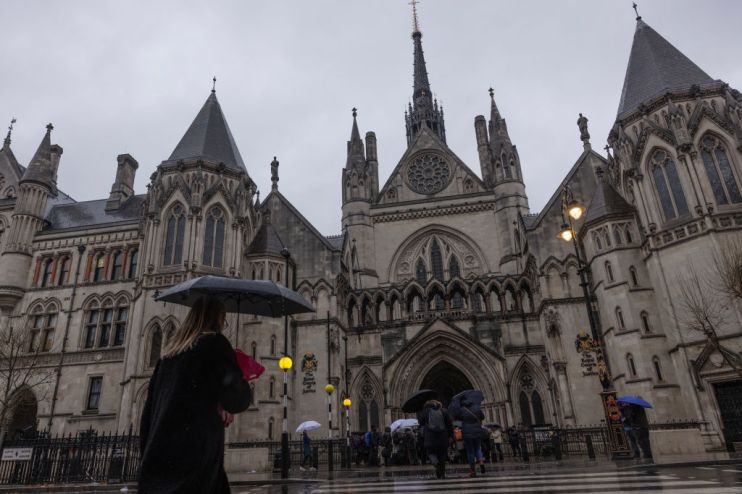Mikhail Fridman loses High Court bid over mansion upkeep

Sanctioned billionaire Mikhail Fridman has lost a High Court challenge against UK sanctions after he was refused permission to upkeep a London mansion with a £44m art collection.
The Russian-Israeli businessman took the UK sanctions office to court after he was barred from making £30,000 monthly payments to cover the running costs of Athlone House, a multimillion-pound Victorian property in Highgate, north London.
Fridman, who is Ukrainian-born, recently made headlines after it was confirmed former Tory chairman Brandon Lewis would join his former firm LetterOne as a senior advisor.
The Treasury’s Office of Financial Sanctions Implementation (Ofsi) also rejected Fridman’s requests to be able to pay £1,850 a month to run an integrated lighting, heating and communications system, and to fund the wages of “non-security” staff.
Fridman’s lawyers argued the decisions were unlawful, saying the 168-year-old property that he bought in 2016 faces “risks of neglect”.
Ofsi said it refused spending requests that would enable Fridman to enjoy his pre-sanctions “lifestyle” and rejected payments to Athlone House Limited (AHL), a company maintaining the property, because its sole director, Nigina Zairova, is also subject to sanctions.
In a written judgement issued on Thursday, Mr Justice Saini dismissed Fridman’s legal challenge, ruling that Ofsi had acted lawfully, rationally and not in a “procedurally unfair way”.
The judge said the purpose of the sanction regime would be “undermined” if payments were permitted to be made to a company controlled by a sanctioned person.
He noted Fridman was seeking “relatively modest” amounts when compared to sums that had already been authorised by Ofsi “which run into several millions”.
The sanctions office has licensed total annual future payments in relation to maintenance and “basic needs” of around £760,000, while also granting arrears and one-off payments in the past of about £1.38m and 29,000 Euros.
The judge said Athlone House, which was built in 1855, had five acres of landscaped garden designed “to emulate the palace at Versailles”.
After buying the 33,173 square feet derelict house, Fridman renovated it “at substantial cost”, with it containing an art collection “of cultural significance”.
Fridman no longer challenged Ofsi’s rejection of a request to pay for a driver, which his lawyers said was because he is “able to travel by public transport”, as he has left the UK.
His lawyers told the court he planned to return to the UK, but the judge said this was not possible because he was an “excluded person” under immigration law.
Fridman had financial assets frozen in March last year following the start of Russia’s invasion of Ukraine, originally on the basis of alleged links with President Vladimir Putin.
But the court was told the businessman denies being an oligarch, says he is not associated with Putin, nor is he “pro-Kremlin” and is not supporting Russia’s war efforts. In September, his “designation” under the sanctions regime removed allegations he was “pro-Kremlin”.
Barrister Rachel Barnes KC said in written arguments that Fridman remains on the sanctions list based on “his former governance positions relating to Alfa Bank Russia”.
Barnes said: “The utility costs at Athlone House exceed those of many properties, but it is a unique property with unique needs for communications, IT, lighting, heating and security, not least in light of its art collection.”
And she previously said Fridman, who regularly appears in the Sunday Times Rich List and is believed to be worth £8.2bn, needed a staff driver for “security reasons”.
Malcolm Birdling, for Ofsi, said in written arguments that it previously permitted £1,974.43 monthly payments for CCTV and £24,083 monthly payments relating to seven security staff.
He said Ofsi “rationally” deemed “an estate director/manager, six housekeeping assistants, two handymen and one individual providing ad hoc services” unnecessary for maintenance.
Fridman has “a strained and unrealistic interpretation” over what counts as “basic needs” under the sanctions regime, he added.
The businessman made his fortune in Russia across banking, retail, oil and telecoms, through companies Alfa Group and Letter One, before moving to London in 2015.
In July, he was permitted to bring a challenge at the High Court over the National Crime Agency’s raid on Athlone House last year. A hearing is expected to be on November 14.
Press Association – Tom Pilgrim
